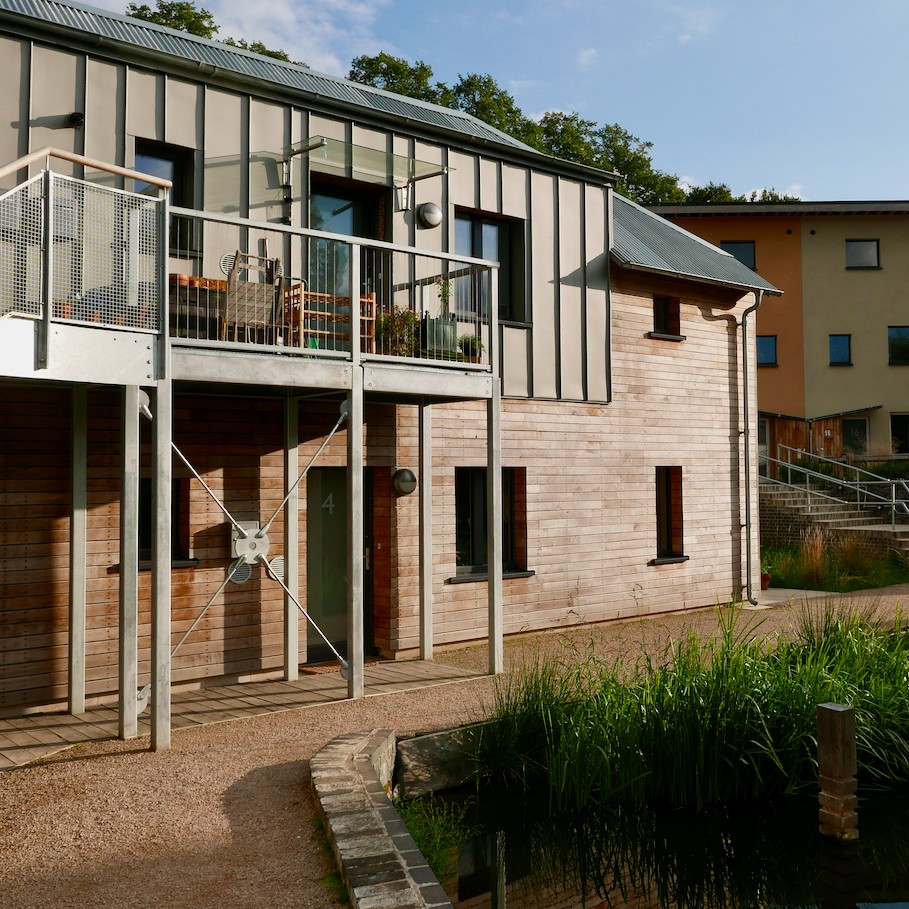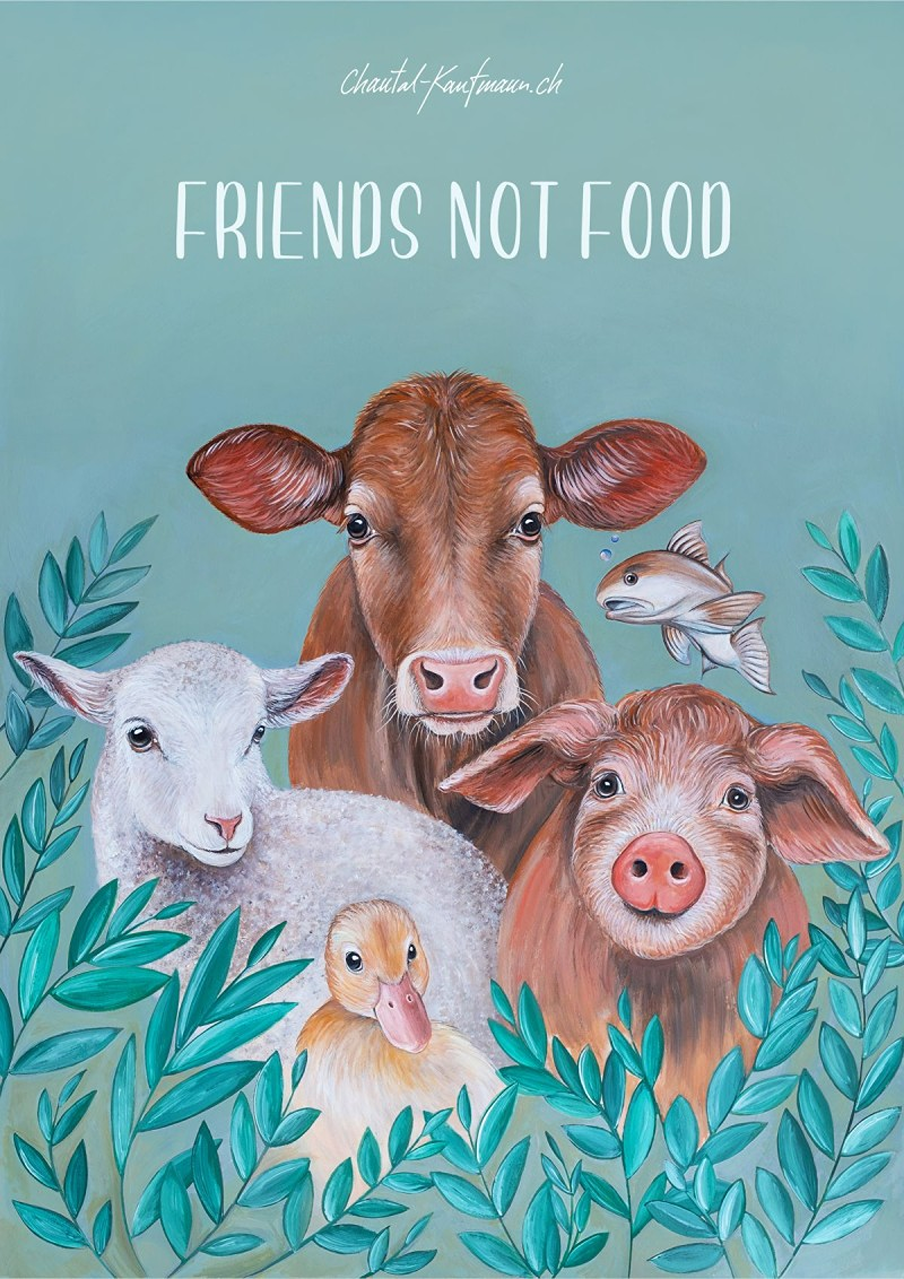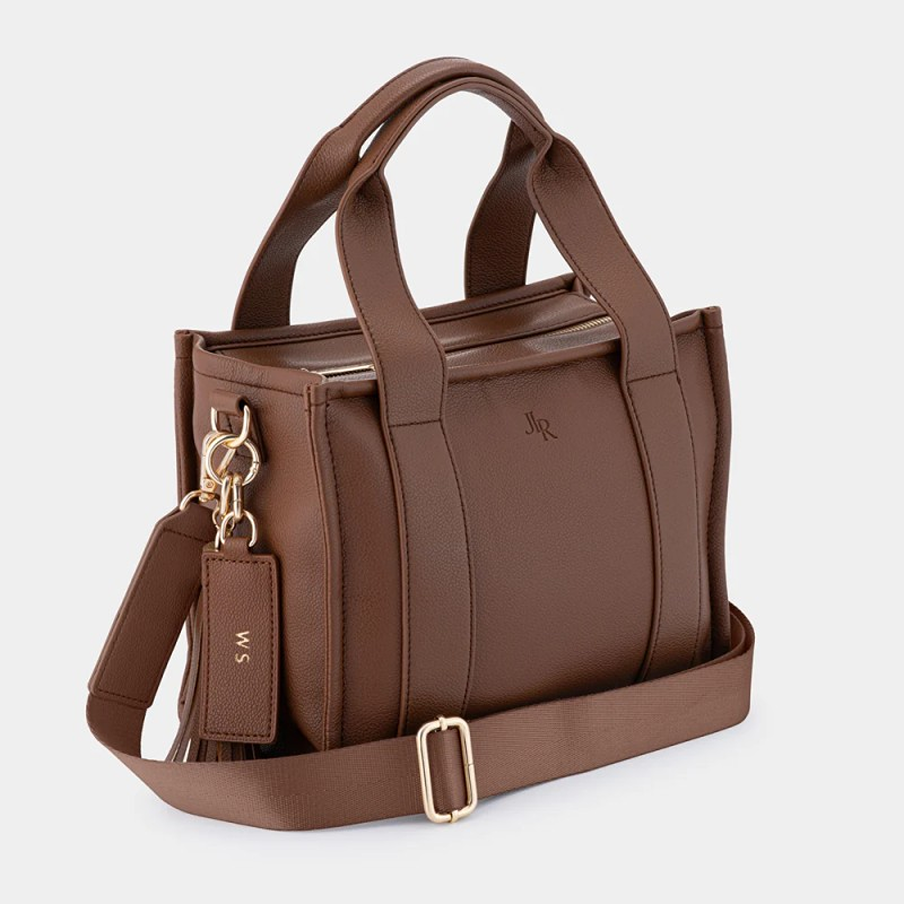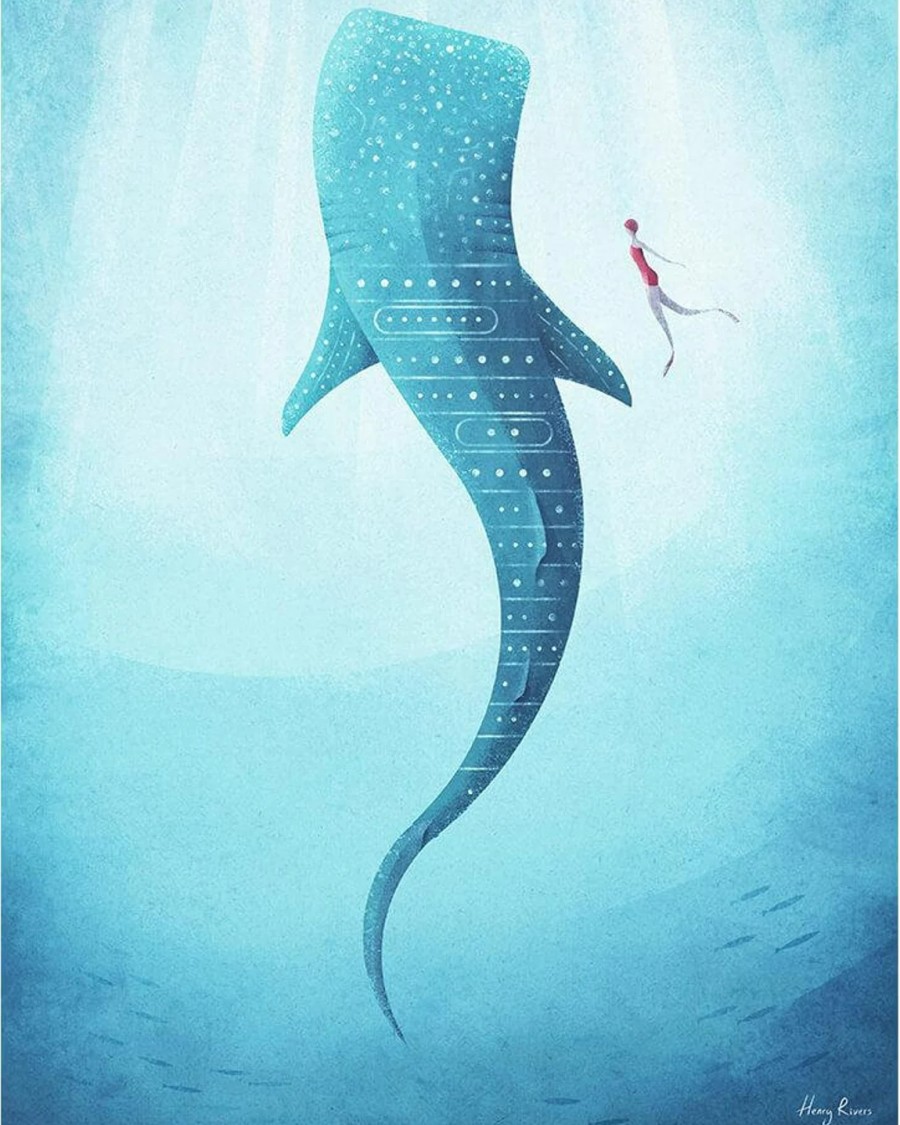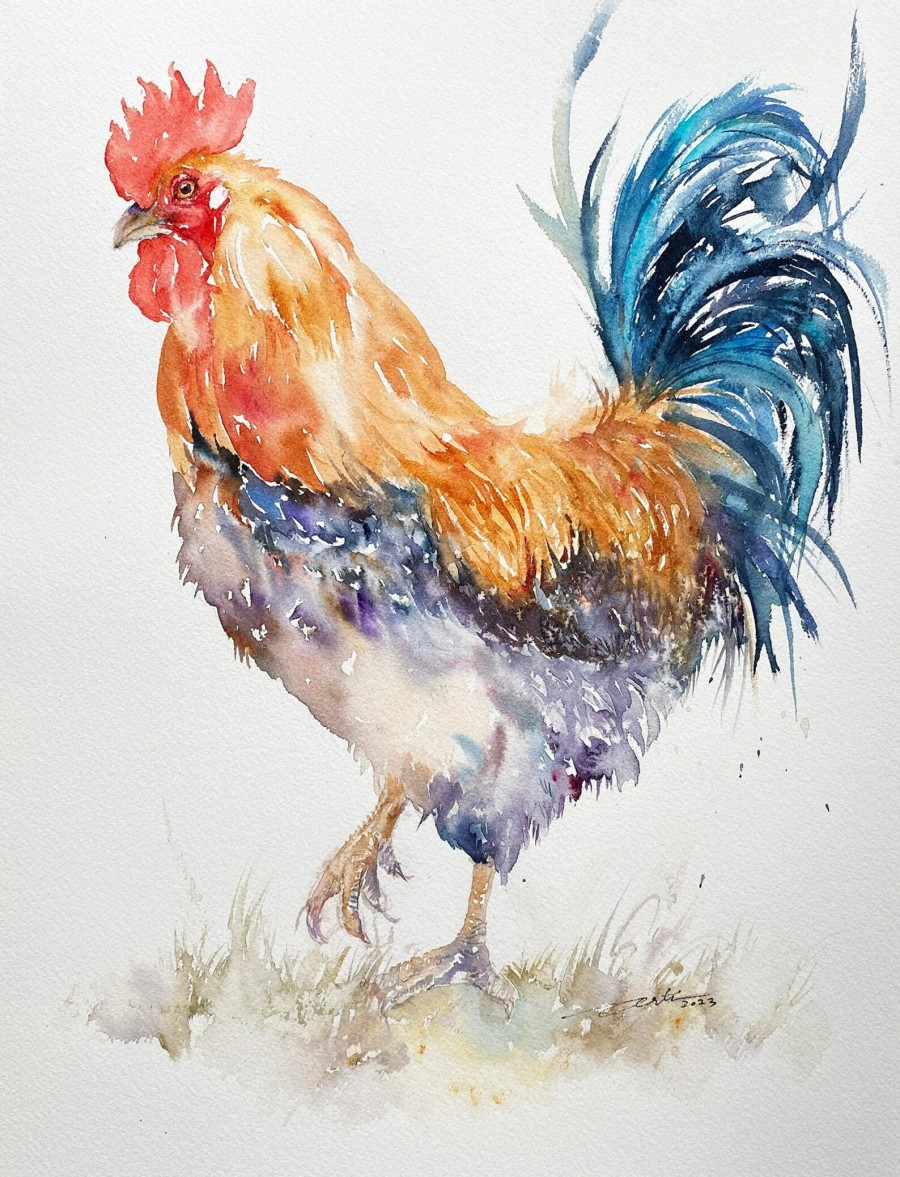
Chickens are descended from dinosaurs (paleontologists can’t tell the difference in a silhouette apart from size) and yet are the most abused creatures on earth. They are fascinating creatures who love to dust-bathe and forage for food and sing to their chicks in the womb! Yet we have factory-farmed chicken, cock-fighting, abandoned pet roosters and chickens, and of course battery eggs. Our bird friends are now so overbred, there are now around 25 billion chickens on earth.
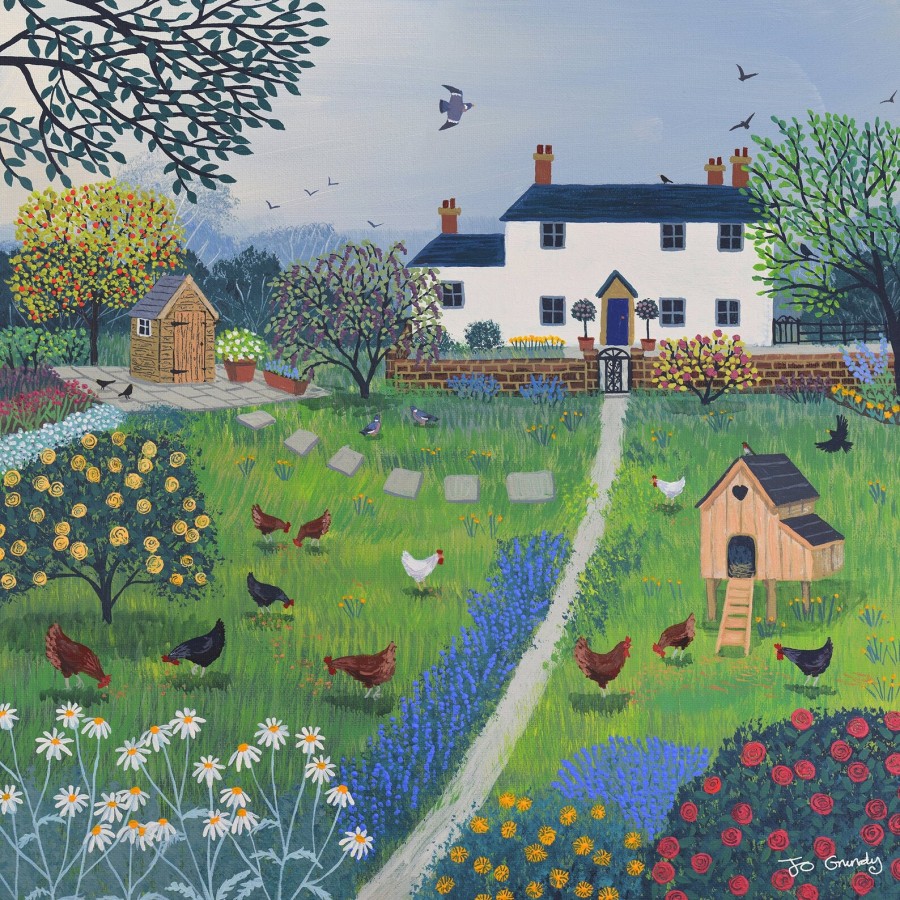
Try some plant-based recipe books using real foods. If you do eat chicken, choose free-range certified organic, for best welfare standards. Most chicken on sale has ‘hock burns’ caused by ammonia that is cut away, as consumers are now up on their welfare checks. Visit Compassion in World Farming for info.
Same with eggs. You can find alternatives to cooking and baking with eggs. Or if you eat them, choose free-range certified organic (labels are confusing, this is the only one to trust). Or try some plant-based alternatives to KFC:
people adopting ex-battery hens (and roosters)
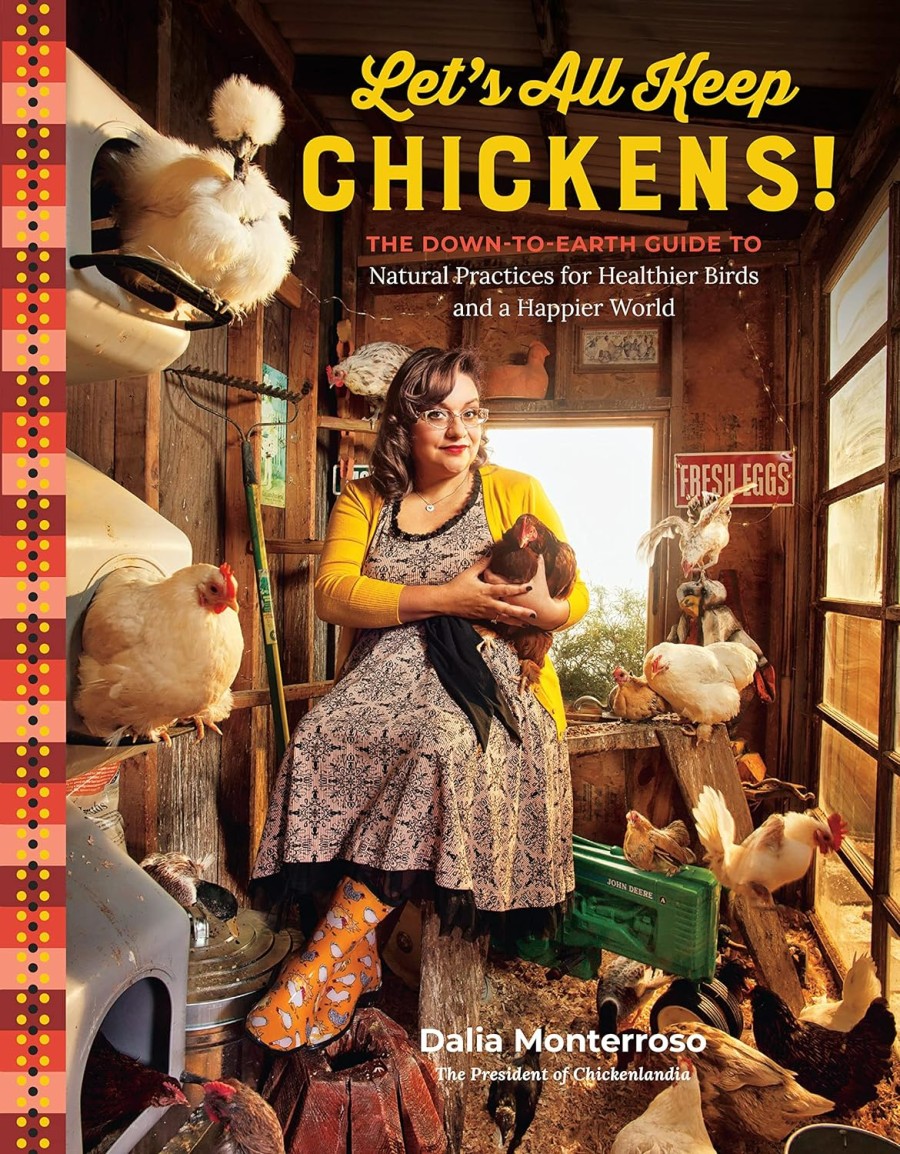
If you have the right amount of land and suitable premises, you could adopt ex-battery hens (and roosters) via British Hen Welfare Trust and other charities that work with farmers.
Note this is not an easy job, as you have to ensure enough space and knowledge to prevent pecking, and keep areas safe from predators. Specialist food is often needed, as most hens are not in a good way, when released from the battery farming industry.
Let’s All Keep Chickens is the ultimate book for anyone who is rescuing chickens, or is a free-range farmers. Written by arguably the world’s amateur expert on chicken-care from America, this covers the basics from low-cost natural practices and the belief that we have a natural ability to care for chickens. Addressing a broad audience, Dalia covers how to raise chicks and look for a suitable chicken coop, how to naturally keep chickens healthy and how to plan a flock for happy hens and roosters, with no pecking.
Drawing on her own experience as the child of Guatemalan immigrants, she looks at previous generations have lots to teach others about keeping chickens. You can also take her online course at Chickenlandia! Also read how to speak chicken and a book to identify what’s killing your chickens, with tips for safety of the flock.
how to keep prey animals safe from foxes
Prey animals (chickens, rabbits etc) are not just at risk from foxes, but other creatures like badgers and rats. Foxes are very good predators (and can strike any time of day or night) but know they are not killing chickens due to cruelty, but following instincts to feed themselves and cubs. Foxes rarely starve as they are scavengers, so keeping hens safe won’t cause them to go hungry.
British Hen Welfare (which rescues ex-battery hens designed for slaughter) has tips on their website to keep chickens safe from predators. Obviously you need a large chicken-friendly coop with fencing so hens are free to roam and be happy, but secure from predators (be careful to use safe netting).
Never leave hens overnight, put them to bed at dusk (and keep them in secure runs, if you are going out for the day). Always check your coops and runs for damage, high winds or snow can weaken areas like roofs. Fixed runs should be at least 5 ft high and laid on grass at right angles, to prevent predators digging underneath (in Scotland, runs have netting on top to deter birds of prey). Also don’t house near overhanging branches, which foxes can use to gain entry.
wisdom we can learn from chickens!
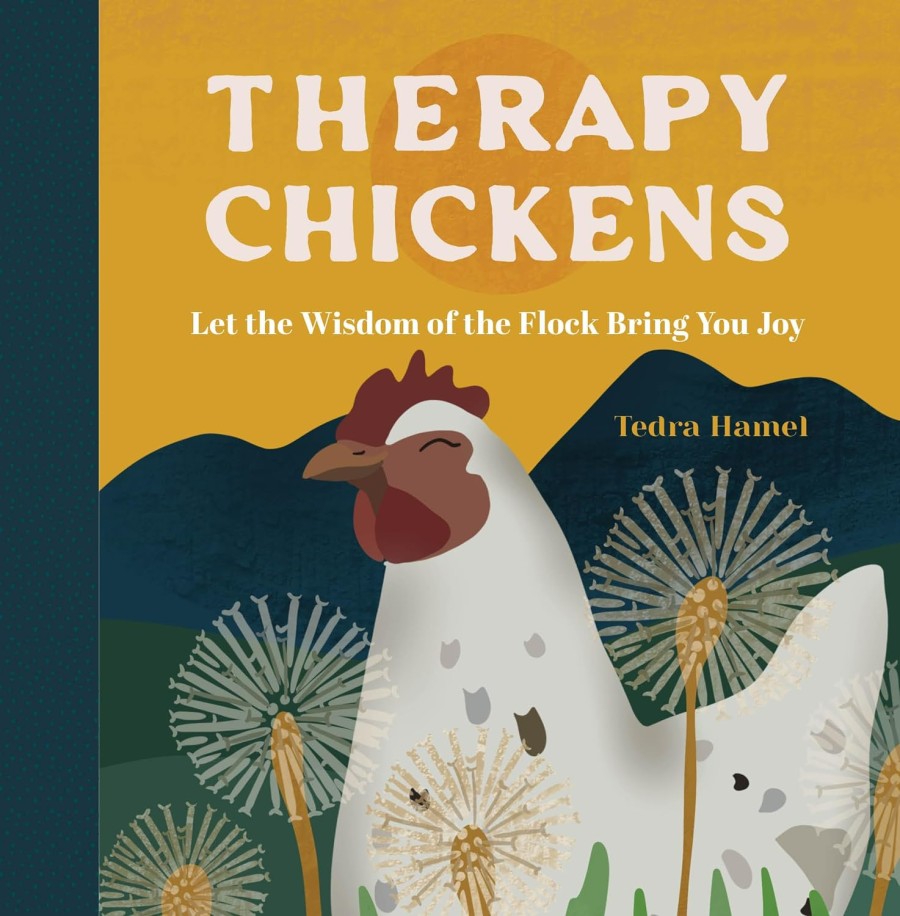
Chicken Therapy is a delightful book packed with gorgeous illustrations, but also gleaned wisdom from our hen friends, whether they greet the day, explore new surroundings or tend to their chicks. Penned by a ‘self-proclaimed chicken lady’ from the US Pacific Northwest, example wisdom includes:
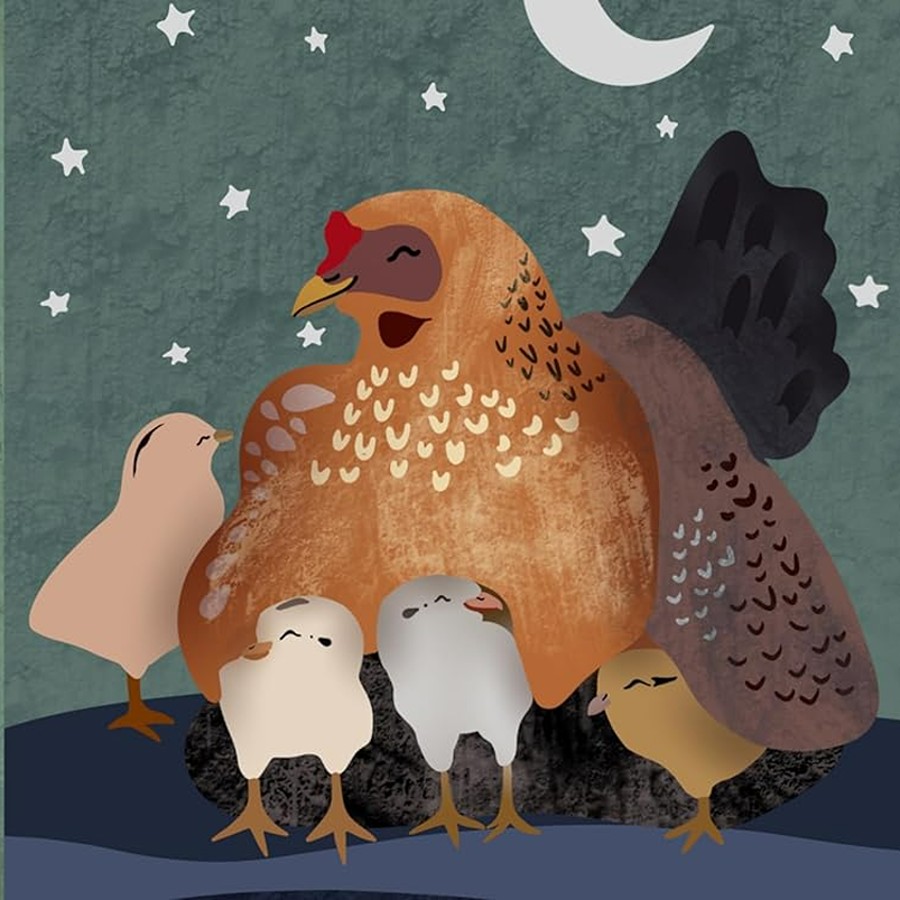
- Even if you can’t fly, don’t be afraid to stretch your wings. You may just get off the ground after all!
- Listen to the squawk of others. There really may be a hawk flying overhead.
- You don’t have to have a huge house and lots of possessions, to be happy. Your small coop is adorable, comfortable and a wonderful home.
- Don’t be afraid to put yourself out there. Connect with others and find your flock.

